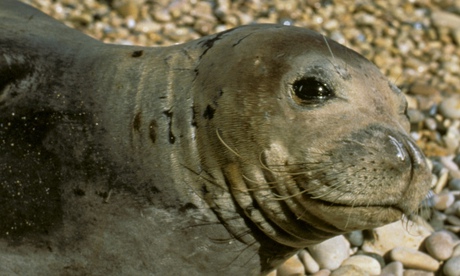
We see further by standing on the shoulders of giants. When Isaac Newton expressed this idea, he also exemplified it: he was effectively quoting 12th-century philosopher Bernard of Chartres. Who was probably making reference to the classical Greek myth of Orion, the temporarily blinded hunter who carried his diminutive servant, Kedalion, in order to see ahead. The notion that we are indebted to the knowledge of the past is a deeply revered cornerstone of our understanding of the universe, particularly in the sciences.
In this lush, epic and hugely enjoyable book, biologist Armand Marie Leroi explores the idea that it was another ancient Greek giant whose shoulders we may all stand upon. In his mid 30s, around 346 BCE, Aristotle exiled himself from Athens to islands in the Aegean, where he spent time thinking and writing about nature, possibly near a lagoon on Lesbos. We primarily know him as a philosopher, but here, Aristotle's biological output was titanic: he dissected dozens of species and compiled the first biology textbook, Historia Animalium. It is this body of work that Leroi argues continues to percolate through scientific thought today.
There's great temptation in analysing historical scholars to suggest that their insights were in some way vatic, or to use that horrid phrase, they were "anticipating" things to come. Leroi does a splendid job of avoiding hagiography of his hero, and never springs that inviting trap. Aristotle's contention that seals are mutated quadrupeds is true in a purely Darwinian sense: they are mammals, evolved from terrestrial four-legged mammals. But Leroi points out that this is not Aristotle's thinking. The idea that mutation from common ancestors was the cause of species is not present in any of Aristotle's work. He was not predicting evolution, nor did he once consider that Darwinian truth.
Leroi happily highlights Aristotle's many errors, some trivial – the position of the dolphin's mouth, most of his analysis of eels – and some conceptually flawed. In 1871, Darwin considered the origin of life occurring in a "warm little pond", if all the right ingredients were present and invigorated by a bolt from the blue. This became the foundation of the concept of "primordial soup" and that quotation is often held up to yet again show Darwin's undoubted genius. Alas, primordial soup is a flawed concept for the origin of life and Darwin's speculation was merely idle pondering. Aristotle's big conceptual mistake was also about the origin of life. He suggested that new life in certain instances arose from non-life, a related idea called "spontaneous generation". This remained the prevailing view until Louis Pasteur killed it dead in the 19th century with that quintessential scientist's tool – the experiment.
Leroi is a beautiful writer and it's been too long, a decade, since his last outstanding book, Mutants. The ease with which he transports the reader both to Aristotle's world and the contemporary Aegean is enviable to the point of being alarming. Maybe The Lagoon is a new genre: classical scientific travel writing. There are so many lines of virtuoso prose that to single one out seems churlish. But this typical sentence touched and stayed with me over 500 pages: "The shell had sat in the sunlight of a bathroom windowsill, buried in sedimentary layers of my father's shaving talc, seemingly for ever.'
The richness of the words can be overwhelming at times. But this is a minor criticism – The Lagoon is grand but not grandiose, and probably should be consumed at leisure, poring over the words and illustrations, in the evening sun, with wine.
I am perpetually wary about placing scientists on pedestals. For me, the only Titan is Darwin, and the others merely Olympians, and Darwin was scrupulous in his humble acknowledgment of his intellectual forebears. The concept of giants' shoulders summons some sort of lineage of great men (and they always are men) standing above their peers, inheriting the brilliance of an intellectual ancestor. Even though we continue to hallow the Nobel prizes, this is an age in which we have tried largely to eschew the worship of these figureheads in the history of science.
This whiggish view of progress led by gentleman scientists punctuating intellectual doldrums is a simplistic, clean narrative, but it's just not how science works. The shoulders are broader than individuals: we build on the works of all who proceed, as well as our contemporaries, not just the legendary geniuses with their mythical eurekas. Does all science rest on Aristotle's base? Well, no, and Leroi doesn't argue that. But his influence echoes through history and his rediscovery for my generation of scientists is appreciated. Science is a modern term, but while Aristotle was a philosopher, he also smells like a scientist to me: his craving of data in all forms – anatomical, reproductive, taxonomic – his seemingly anachronistic empiricism about biology, these are classic symptoms of our disposition.
This big, sumptuous book made me hungry. Intellectually, to learn about the classical world's take on what we now call science. But it made me viscerally and literally hungry: for grilled fish, oysters, figs and meze, and to sit on the shores of the Aegean idling at barnacles and cuttlefish copulating in the spume. Not bad for a science book.
The Lagoon is published by Bloomsbury (£25). Click here to buy it for £20 with free UK p&p

